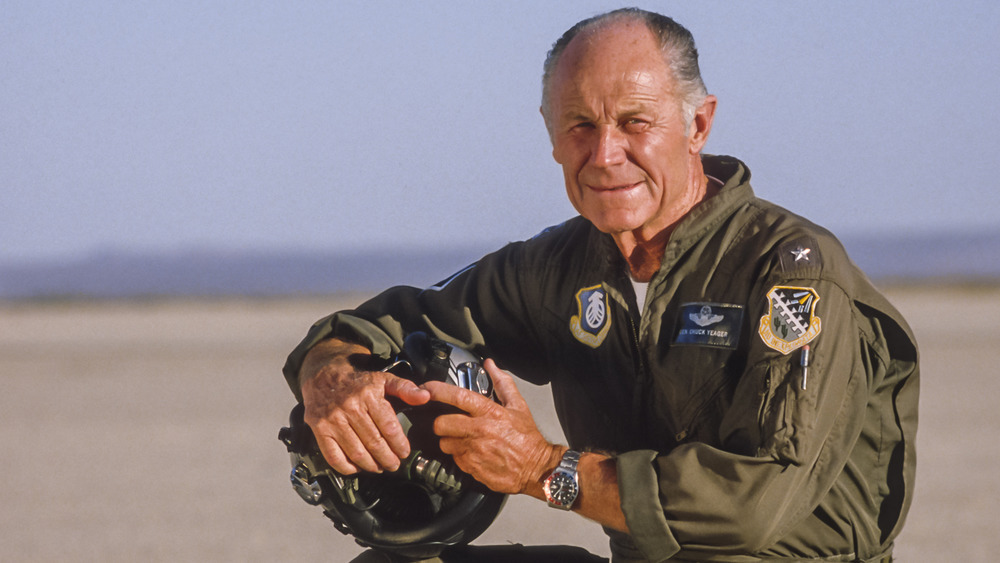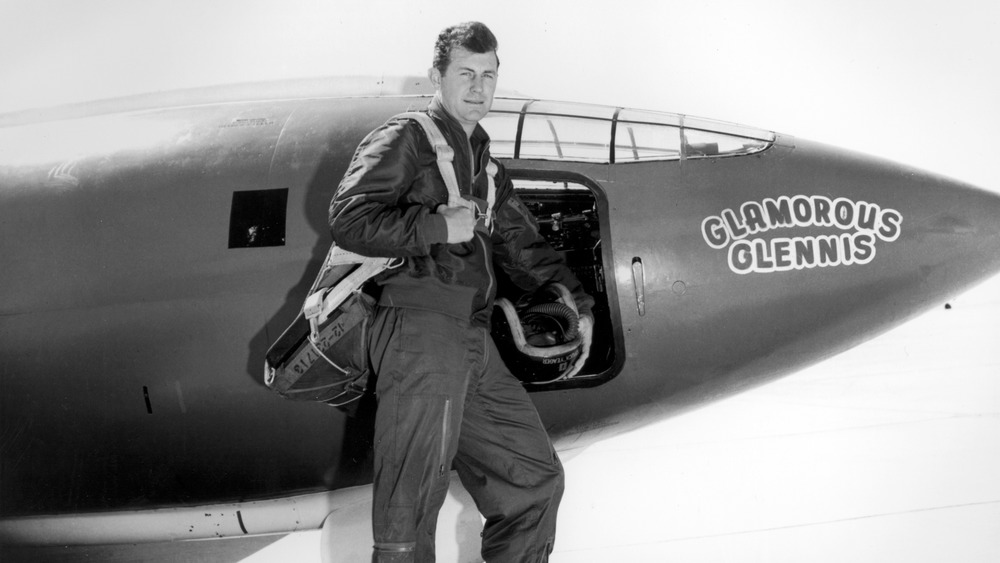First Man To Break The Sound Barrier Passes Away
Chuck Yeager, the first person to ever travel faster than the speed of sound, has passed away at the age of 97. Yeager's death was first announced on Twitter by his wife, Victoria Scott D'Angelo. Yeager had spent his later years living in Northern California, but passed away in a Los Angeles hospital on December 7, 2020.
According to CNN, Chuck Yeager was born and raised in West Virginia, and enlisted in the Army Air Corps at the start of World War II. During the war, Yeager flew on 64 missions and shot down 13 German planes. Being a fighter pilot was one of the war's most dangerous jobs; Yeager was himself shot down in 1944, but escaped capture through the help of the French underground. Despite the risks, Yeager remained passionate about flight. After the war, he signed up as a test pilot for the Air Force's new planes — a similarly dangerous job.
At the time, the military was interested in determining whether pilots could break the "sound barrier" — the increased amount of aerodynamic drag and lack of control that occurs when a plane approaches the speed of sound. Until the 1940s, no pilot had been able to accomplish the feat and live. But, in 1946, Colonel Albert Boyd chose Chuck Yeager to be the test pilot of the new, rocket-powered Bell X-1 aircraft, a plane designed specifically for supersonic flight. Yeager agreed.
Chuck Yeager died December 7
Chuck Yeager named his bright-orange X-1 plane the "Glamorous Glennis" after his first wife, Glennis Yeager, who passed away in 1990. On October 14, 1947, Yeager officially became the first human to break the sound barrier, with a flight hitting Mach 1.06 — 1.06 times the speed of sound, or about 700 mph. Per CNBC, Yeager performed the flight with two broken ribs; he had fallen off a horse a few days prior, but refused to tell his superiors about the injury for fear of jeopardizing the mission.
According to CNN, Yeager would continue to set records, flying at Mach 2.44 in 1953. Yeager also helped train America's first astronauts. Since Yeager lacked a college degree, he was ineligible for selection by NASA, but told Forbes that he "wasn't interested" anyway, since astronauts have very little control over their vehicles. In 1975, Yeager retired from the Air Force with the rank of Brigadier General, but continued to perform occasional flights. In 2012, reports Fox News, Yeager successfully re-enacted his supersonic flight. He was 89 at the time.
Per Time, Yeager's death was called "a tremendous loss to our nation" by NASA Administrator Jim Bridenstine. But in his 1985 autobiography, Yeager wrote, "Living to a ripe old age is not an end in itself. The trick is to enjoy the years remaining ... If I [crash] tomorrow, it won't be with a frown on my face. I've had a ball."

